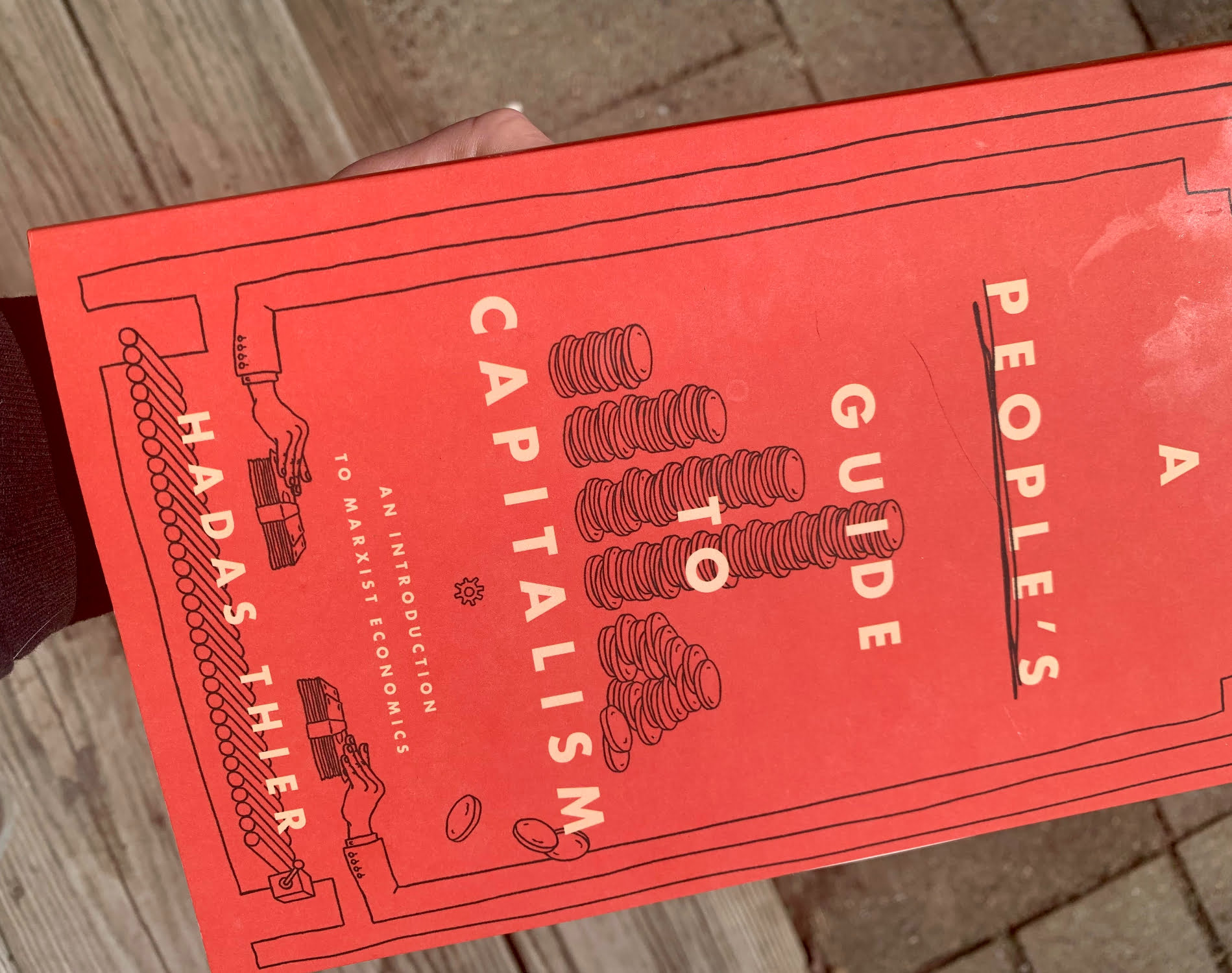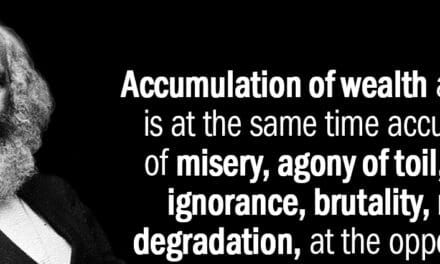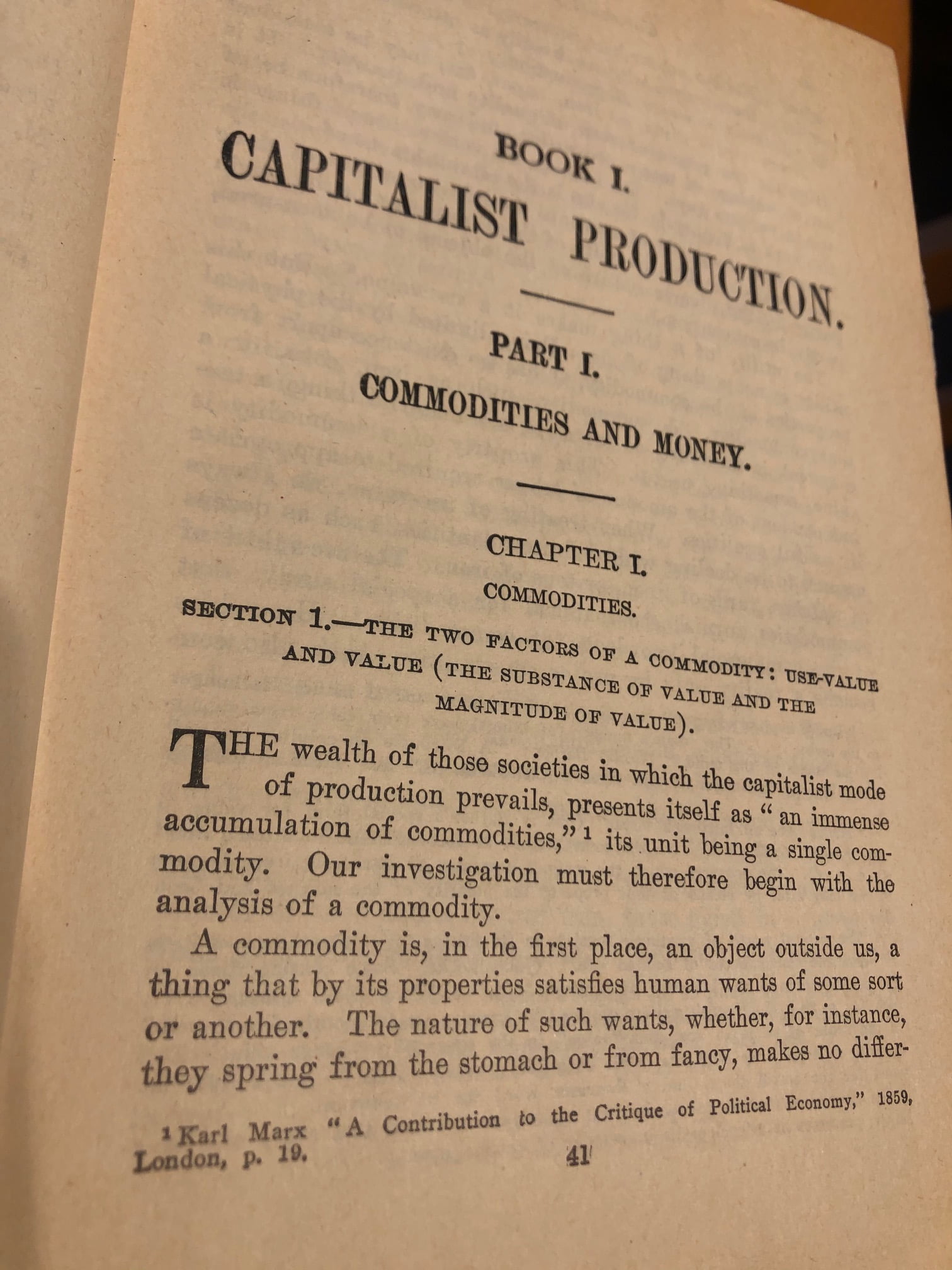In Daniel Bensaïd’s pivotal piece, Leaps, Leaps, Leaps, he addresses Lenin’s conception of political change. A prominent leader on the French revolutionary left, Bensaïd insisted that change is non-linear, political moments come and go. However, there is one segment in particular that deserves closer examination.
“How can a class which is physically and morally stunted in its daily life by the involuntary servitude of forced labor transform itself into the universal subject of human emancipation? Marx’s answers on this point derive from a sociological gamble: industrial development leads to the massification of the proletariat; the numerical growth and the concentration of the working classes leads to progress in their organization and consciousness.” (bolded text mine)
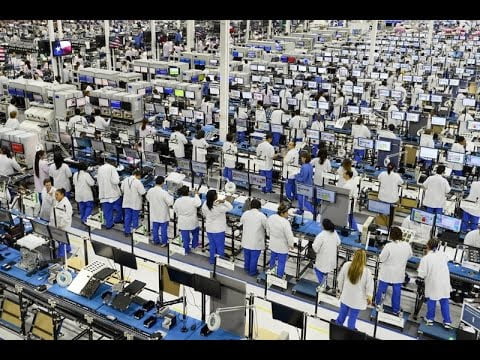
Unfortunately, that gamble has not paid off. As the average wage has stagnated compared to the income of the upper 1%, the numerical growth of the working classes has not led to increased organization and consciousness. The division of labor is now more than just a metric of responsibility on the shop floor, it represents the divisive state of labor politically. The growth of conservative populism in a number of Global North countries clashes with the (more prevalent) principles of left working-class movements in the Global South. Here in the United States, we see that split when some working-class people are willing to attack the LGBTQ community and vote for a proto-fascist like Trump juxtaposed to working-class folks eager to support bodily autonomy, racial equality, and an economic safety net.
Let’s face it, Marx’s gamble has not borne out. So what now, abandon the project of a better world? Accept that this is it? Of course not. Marx was an innovator who built upon the dialectics of an earlier thinker, the German philosopher Hegel. Marx—as he liked to say—stood Hegel on his head by suggesting that material conditions create conflict, leading to social and political changes. And, under capitalism, material conditions would lead the working class to organizing itself as a political power and overthrowing the capitalist order. Today, scholars debate the degree to which Marx viewed his own prediction as inevitable. But, at the very least, Marx bet on the likelihood of an increasingly organized and conscious working-class.
I can’t speak for the man, but if you asked Marx if he was one hundred percent correct about everything, he would probably scoff. Of course not. It’s up to you, to us, to make adjustments as needed. The basic facts are the same: capitalism is exploitative and unsustainable. It will give way. Marx gambled that it would give way to a socialist state and eventually to communism. Yet, looking around at the rise of the right across the Global North as well as the Global South, we can recognize that a fascist option is also possible, and that working-class consciousness isn’t guaranteed.
So, what does that mean for us? There’s a term called “revolutionary optimism” that can offer a space for hope. The origins of the term are vague. Early instances were seen in 1969, 1985, and some argue that Antonio Gramsci captured it when he borrowed a quote from Romain Rolland, saying revolutionaries required “pessimism of the intellect, optimism of the will.” In 1938, Trotsky noted the need for optimism when he spoke about revolutionaries. They “always consider that the reforms and acquisitions are only a by-product of the revolutionary struggle. If we say that we will only demand what they can give, the ruling class will give only one-tenth or none of what we demand. When we demand more and can impose our demands, the capitalists are compelled to give the maximum. The more extended and militant the spirit of the workers, the more is demanded and won. They are not sterile slogans; they are means of pressure on the bourgeoisie, and will give the greatest possible material results immediately.” And in later years, the term has become even more popular. Recently, for instance, Andre Vltchek referred to it prominently in his 2018 book, Revolutionary Optimism, Western Nihilism.
What does revolutionary optimism mean in today’s atmosphere of despair? Does this mean the working class is irrelevant? Hardly. But it does mean that we must radically rethink our conception of the working class. Those who labor and are exploited might no longer be toiling in mines or factories.They might be white collar folks with nice apartments and easy transportation. They may afford cable television and easy luxuries. Or they might be working double shifts at the local hospital for the minimum wage. Or they might be baristas serving you your next coffee. Today’s working class isn’t what it was one hundred years ago.
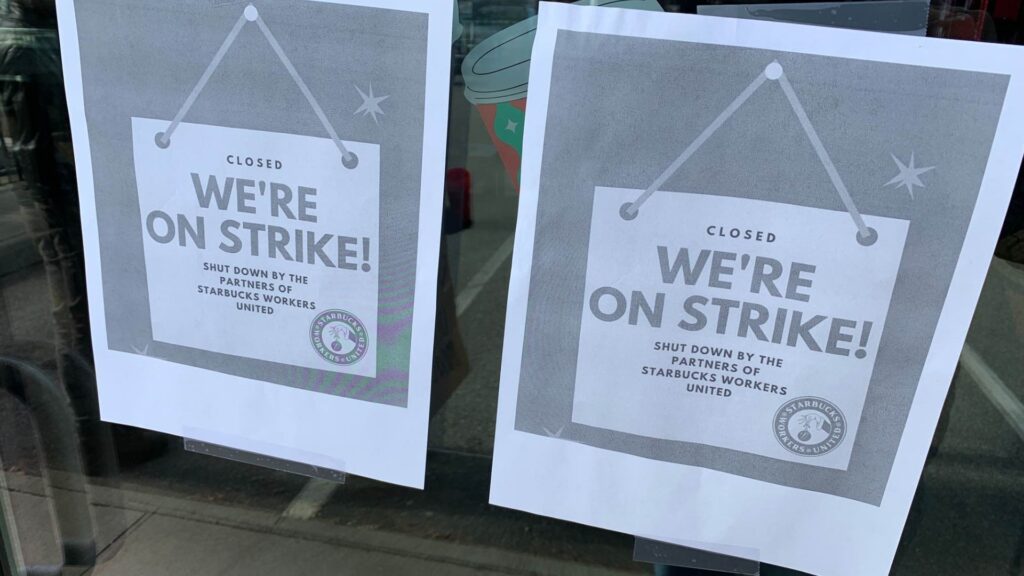
So, let us rethink the revolutionary class. Socialists operate on the radical belief that the future is undetermined, everyday people can positively change the world through political struggle. Beyond that, actively participating in struggles for change has a positive effect on the individual. It is often hard to see beyond the given state of things. A dire situation persists for migrants, women, and LGBTQ people. A genocide is unfolding in Palestine. We have a Supreme Court that is more than happy to rule in extremely conservative ways. It is easy to get lost and paralyzed among all this despair. But, revolutionary optimism reminds us of two things: the future is yet to be decided, and you are an active agent.
Once one accepts those two facts, a person can feel a new sense of hope. Not a sense of inevitability. Not the guaranteed working-class consciousness that Marx tried so hard to promise. But a chance at change, a chance at growing consciousness, and a reminder that it is partly up to each of us to step up. There are many ways to get involved through DSA, or a number of other socialist organizations. There are folks out there coming together in different ways: running for office, organizing pressure campaigns, planning rallies, organizing unions, confronting racist cops, and more. The question is, will you accept that the future is unwritten? Will you take this moment to step into the fray and help? The choice is yours, we write our own future.
We invite you to get involved with Maine DSA, as well as important organizations like Maine Voices for Palestinian Rights, IfNotNow, Maine Youth Justice, Portland Outright, and more.

